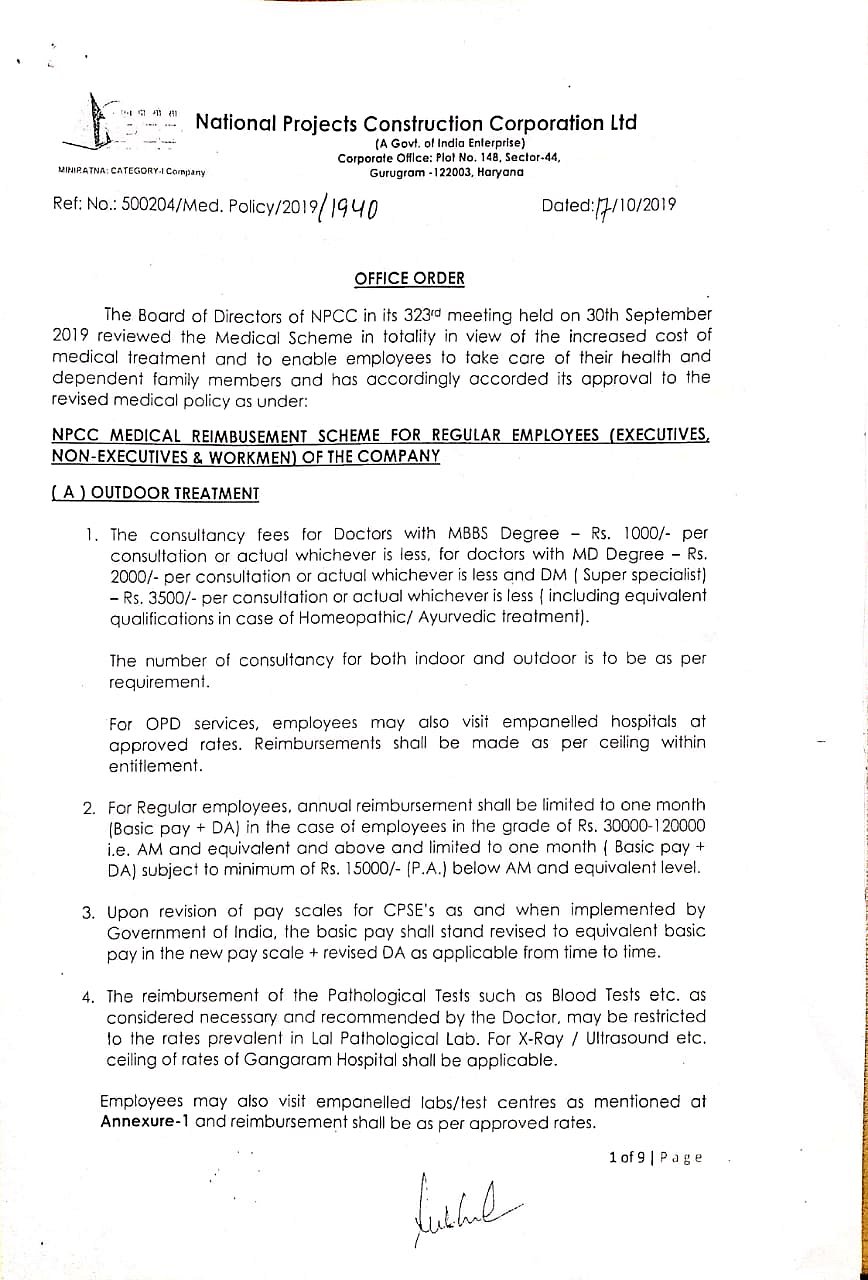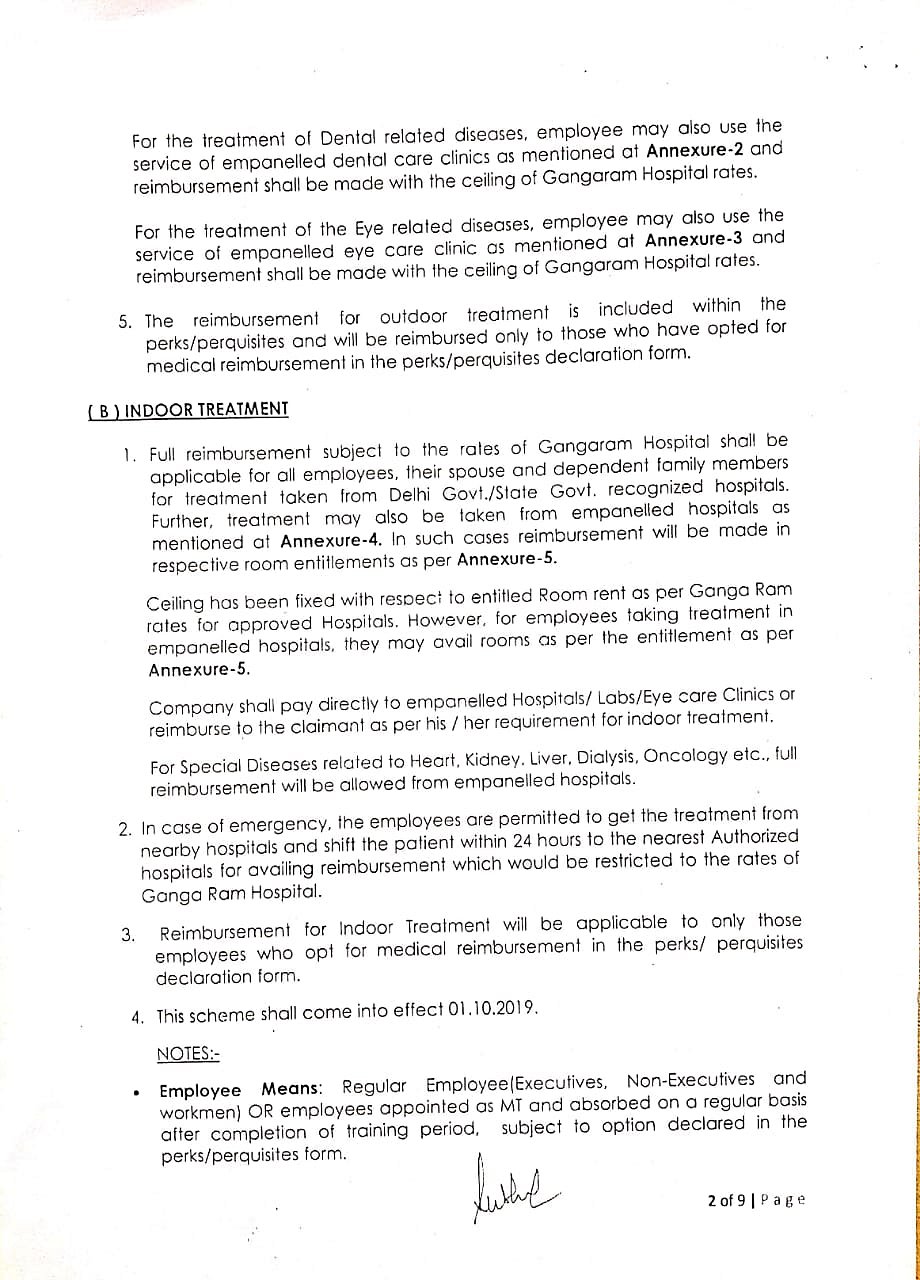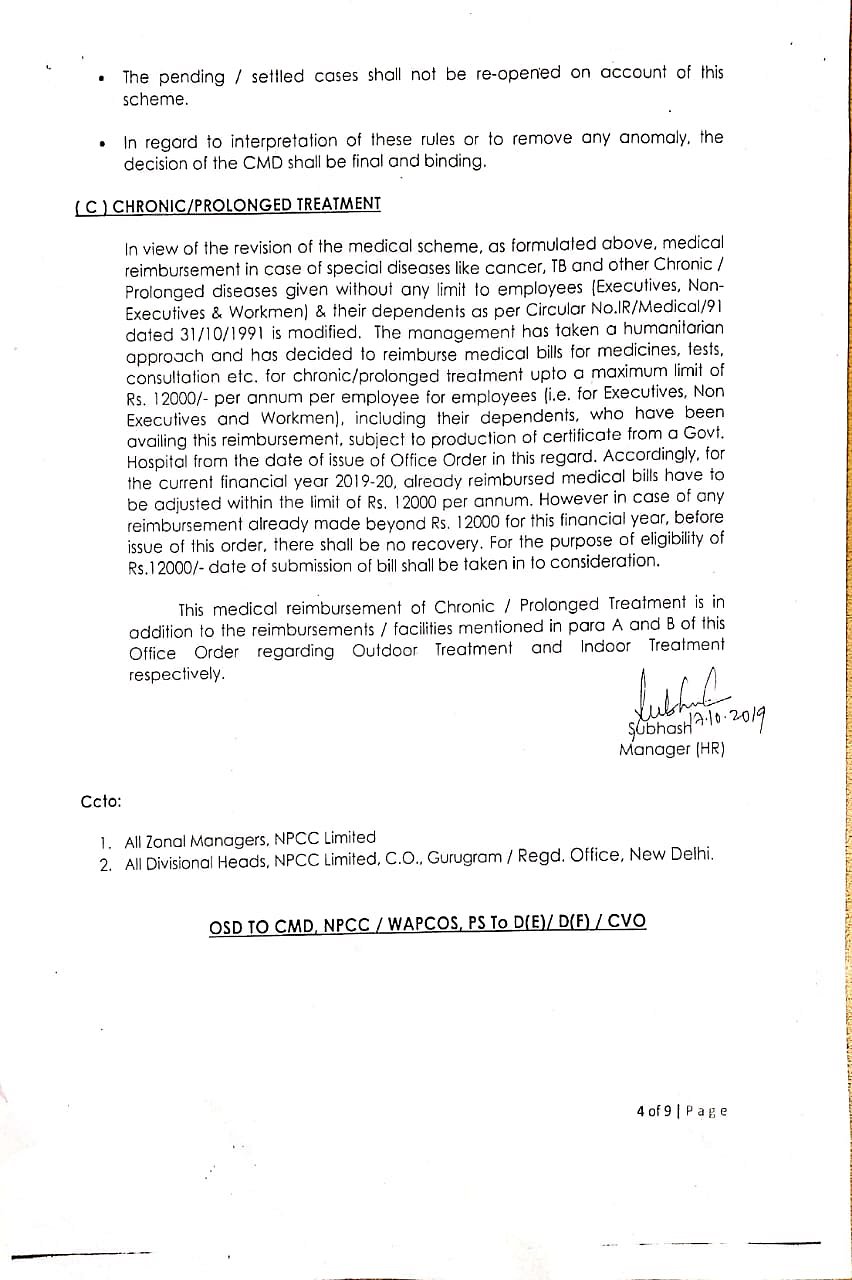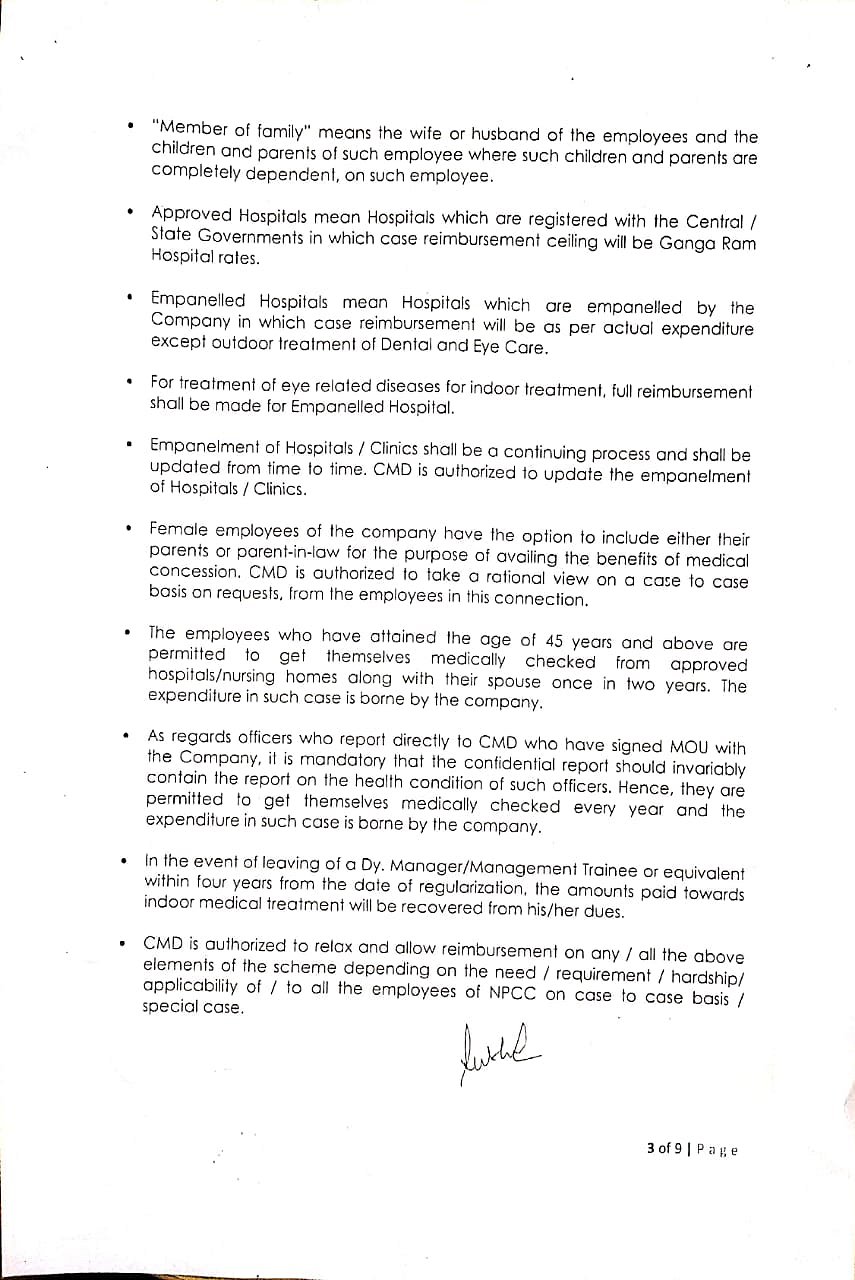Modi govt slashes medical claims of PSU employees
In a shocker to employees of National Projects Construction Corporation, the board of directors passed an order last week limiting claims under chronic and prolonged ailments to Rs 12,000 per year

In what has come as a shocker to the employees of National Projects Construction Corporation (NPCC), a Public Sector Enterprise (PSE), the board of directors of the organisation passed an order last week (October 17, 2019) limiting the claims under chronic and prolonged ailments to Rs 12,000 per year.
This has been one of most crucial benefits of all employees as all of them one family member with at least one chronic illness. Claims for chronic ailment include medication for heart disease, diabetes, hypertension (blood pressure), TB, cancer, thalassemia, asthma, arthritis, cystic fibrosis and mental problems such as bipolarity and depression.
Ironically, the management memo states that reimbursement in case of special and chronic diseases, which used to be given to employees and their dependents without any limit since 1991, has been modified and, taking a humanitarian approach, the management has decided to give Rs 12,000 only for employees and their dependents annually.
To put it in perspective, a person who suffers from hypertension and diabetes is usually prescribed medicines worth Rs 4,000 a month. For a few people, it would be lesser than this amount and for a few others, it is likely to be much higher.
Add to this the cost of the medicines for a person’s spouse and elderly parents. Most diseases which come under chronic ailments are those which require daily medications multiple times and doctors advise that they shouldn’t be stopped.
The office order, however, said that the reimbursement amount for consultations has been increased, taking the rates at Gangaram Hospital in New Delhi as the base rate. Earlier, NPCC used to follow the rates given under the Central Government Health Scheme (CGHS).
But, the reimbursement for outdoor consultations and treatment has been included within perks and will be reimbursed only to those who have opted for medical reimbursement in the declaration form for perks. So, if an employee has not opted for it in the declaration form, he or she will not get it.
In a case of blatant discrimination, the new order creates two classes of employees - those who work with the Chairman and Managing Director (CMD) and those who don’t. Those who work with the CMD are permitted to get themselves medically checked every year and the expenditure in such cases is borne by the company. But, all the other employees can get it done only once in two years, if they want the company to pay for it.
These changes have been made under the garb of improving health care benefits as recommended by the Third Pay Revision Committee which became effective from January, 2017.
However, this management order goes against the committee’s orders. The committee, in its directives on healthcare, had stated that if a PSE was providing better medical policies that what the committee has recommended, then the organisation could continue with its policy.
In fact the pay commission’s recommendations state that the healthcare policies and medical facilities should be outside the purview of the ceiling on perks and allowances as it is a need-based and critical welfare facility for all employees. Instead, with this order, the board has included medical facilities with perks and allowances.
But, this is not all. Unlike other PSUs, NPCC employees do not have post-retirement medical benefits as mandated by the guidelines of the department of public enterprises.
But, this is not for the first time this is happening. In July, 2018, the organisation had issued a memo to withhold payment of these medical bills. It was then reinstated five months later, in December after several newsreports were published and employees filed complaints.
NPCC has been acquired by public sector mini ratna firm, WAPCOS Ltd (Water and Power Consultancy Services), and the proceedings were completed in April this year. The company was initially incorporated in 1957 to undertake irrigation and hydel projects and comes under the Ministry of Jal Shakti.
Now, it also undertakes building of townships, surface transport and environmental projects in India and other countries including Iraq, Bhutan and Nepal.
(Note: This is the first in a two-part series of articles on the state of affairs in National Projects Construction Corporation)
Follow us on: Facebook, Twitter, Google News, Instagram
Join our official telegram channel (@nationalherald) and stay updated with the latest headlines
Published: 25 Oct 2019, 8:09 PM




